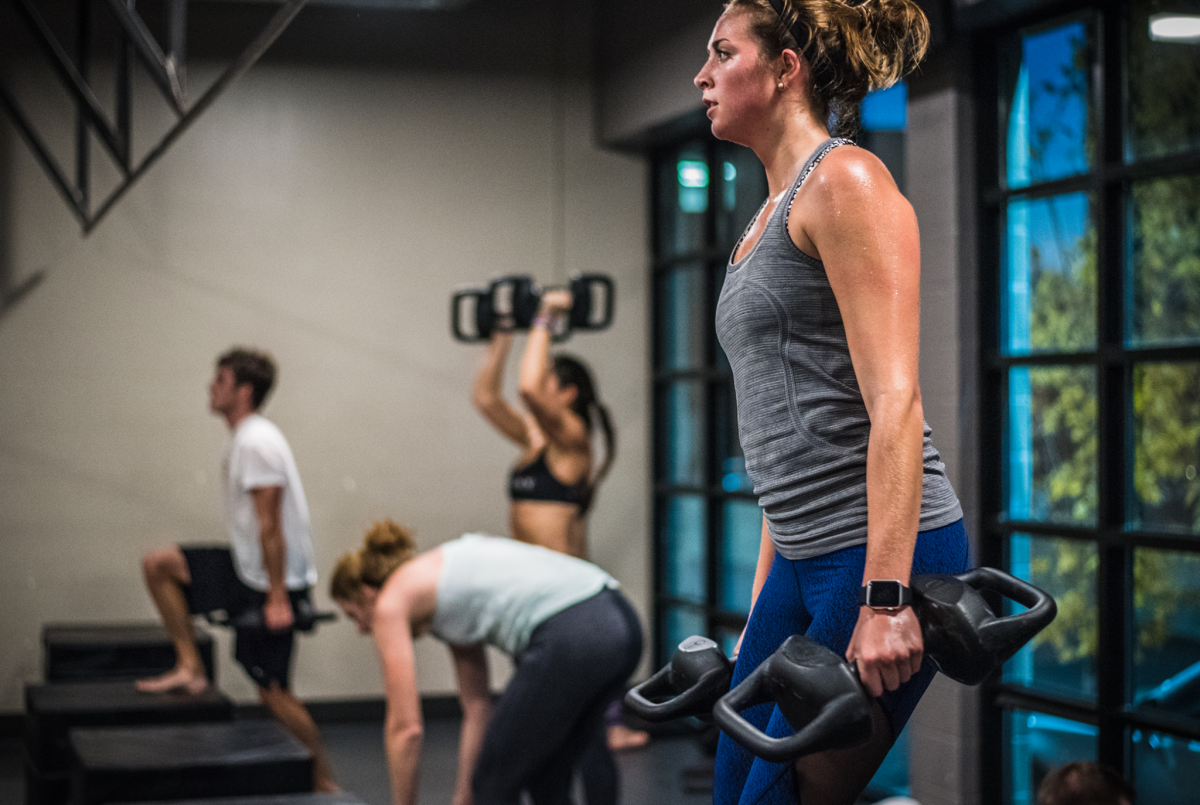The first two blog posts were designed to motivate. They were meant to pump you up. This week, however, we’re going to spend a little time increasing our understanding of the training model and just generally educating ourselves on fitness.
I want to start by covering some of the reasoning behind the training format so you truly understand how it came to be, and why we think it’s the most effective way of increasing your fitness.
The easiest way to begin is by considering the desired outcomes of our training. Why do we work out? What do we hope to achieve? It’s not a difficult question, really, but the answer might differ from athlete to athlete. For me, as I design programming, I think about your desired outcomes as nothing more than a list of physiological, neurological, and psychological attributes that I want to help you improve upon in equal proportions.
So what are these attributes? The first three are endurance, strength, and flexibility. Their adaptation takes place in the body from the neck down. The next three are balance, coordination and agility and the associated adaptation takes place in your brain. In a category all to itself, we have two derivative attributes — speed and power, and they are dependent on your physiological abilities as well as your neurological abilities.
While these eight attributes are at the forefront of our thinking, I would be remiss not to mention a few other, more nebulous ideas that are hugely important and influential at Alchemy. Namely, your psychology – your confidence, your ability to compartmentalize, and the general desire to feel more alive.. When we workout, we want to see positive adaptation in all these areas.
But, how?
Functional movement patterns, varied programming, and intensity, intensity, intensity.
By employing natural, organic, compound, essential and powerful movements like squats, deadlifts, or presses we are ensuring our ability to maximize work in minimal time. This is critical because raising our output is directly correlated to the rate of return on our adaptation.
Furthermore, by changing our programming daily – time, rep schemes, movements, work to rest ratios etc. we force athletes into places where they are comfortable just as often as we force them into training situations where they are not comfortable. And this is a good thing – we simply MUST get out of or comfort zones to expand the margins of our fitness and our capacity for work. If all you ever do are things you like and are good at you’ll never really improve.
Lastly, we know that the more intensity we bring to our workouts, the faster we see results. There’s a detailed explanation which we’ll cover later in the week with another blog post specifically about intensity, but consider the idea from a very general standpoint – if you walk a mile, jog a mile, and sprint a mile, your workload doesn’t change. But the symptoms of your workout certainly do. By going faster, doing more reps, lifting more weight etc. we can manipulate intensity levels.
But before we can be intense, we have to prep the body’s energy systems for work. We do this initially with general heat building and joint prep through our flow sequences. We further prepare the body with more specific movement patterns that are increasingly related to movements in a workout. Hence the interruptions to your flow sequencing with what we call “shims” at Alchemy, wherein we might do some squats, shoulder taps, reach backs etc.
That’s the flow – we warm and prepare the body because we know doing so helps us to bring maximum intensity. We employ functional movements that are powerful and transferrable and we do so in a way that is varied and keeps you guessing. And we do it this way because it is the most effective formula for engendering adaption in the physiological, neurological and psychological attributes we wish to improve.
It’s almost too simple, don’t you think?
More geek talk coming later this week! Until then, happy training.
Tyler Quinn
Tyler Quinn is a coach and founder of Alchemy and Union Fitness. In his spare time he enjoys reading, hockey, jiu jitsu, and gun slinging.
Tyler Quinn
Tyler Quinn is a coach and founder of Alchemy and Union Fitness. In his spare time he enjoys reading, hockey, jiu jitsu, and gun slinging.


